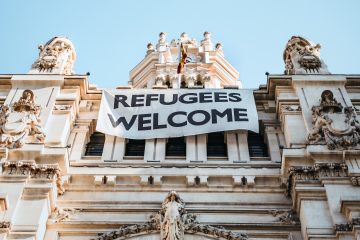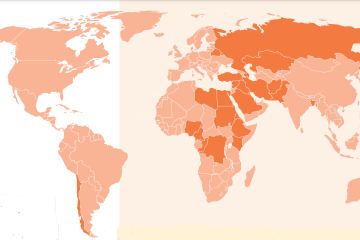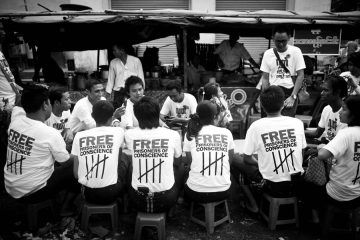‘In spite of these threats, I remained defiant, committed and determined to continue the struggle to achieve fairness, equality and social justice in Cameroon.’
Dorian
Being courageous enough to challenge oppression and stand up for what you believe can often come at a high cost. And while prisoners of conscience are often overlooked as a group, what’s even less talked about is the mental health repercussions of being a prisoner of conscience.
Dorian is a consumer rights activist from Cameroon and was a member of an opposition political group. ‘In Cameroon, the government and the political structures and administration in general does not easily tolerate challenge and criticism,’ he said. ‘Critics and opponents of the regime therefore have to accept that that there will be risks related to their attitudes and positions, and that a certain degree of courage, resolve and dedication is required to stand firm against the regime. As a result of my work and my campaign activities, I have received a number of death threats from anonymous government agents, directed against me personally as well as my family. The situation and circumstances that have ultimately forced me to leave Cameroon and seek refuge in the UK are palpably different and much more serious than what has transpired in the past.’
Prisoners of conscience experience many forms of persecution. They may lose their jobs and access to public services; they may be barred from participation in social and cultural life; they may be harassed, bullied, intimidated and threatened. Physical violence is common as too is sexual abuse, rape and torture. Many are imprisoned, often thrown into solitary confinement with no, or conflicting, information about why they are in jail or what will happen next. They may be deprived of food and medicine while imprisoned or be tortured. Many ‘disappear’ with their families never hearing from them again; others are murdered. The ‘lucky ones’ escape, going underground or forced into exile, often leaving their families behind.
If they flee to another country, they frequently arrive traumatised, destitute and fearful for the future.Their ‘persecution’ continues – albeit in a different form. They have to worry about accommodation, money, and education. They have to adapt to a different culture, often learn to speak a new language, adjust to a new life situation, and make new friends. They fear detention, deportation, destitution and homelessness. And in all that, they often have to cope with the emotional trauma of the events that took place in their home country.
‘Apart from the physical impact of my experiences, I have suffered profound psychological trauma. I suffer inter alia from recurrent flashbacks and nightmares…I feel a traumatised shadow of the active and energetic individual that I used to be,’ said Dorian when he first moved to the UK
Whether influenced by stressful events in their home country, or independent of these events, refugees can suffer from mental health issues and might benefit from professional help, according to a WHO report. Yet accessing healthcare services, is often difficult for them, and the main reasons for that tend to be the same for all refugees. These include language barriers, lack of information, limited entitlements, different explanatory models of mental illness and different attitudes to treatments compared to those held by the majority of the host country.
According to the same report, the findings of numerous studies suggest that there are substantial and consistent differences in comparative prevalence of post-traumatic stress disorder between refugees and host populations. Additionally, long-term refugees (more than 5 years) tend to show higher rates of depressive disorders and anxiety disorders than the host population, which has been correlated with a lack of social integration and unemployment.
Our beneficiaries’ stories reiterate these findings. Preliminary analysis of our impact assessment shows that our beneficiaries perceive mental health issues as being a significant barrier to their personal development and integration. ‘I was relocated , and the main obstacle, was that I do not have the option to have a therapist for my PTSD,’ said Ahmad from Syria.
By providing financial support to prisoners of conscience to cover their basic needs, further their education, and requalify, PoC tries to promote social integration of prisoners of conscience that have been forced to flee, what the WHO report identifies as the first area of intervention for refugees. By providing grants, our beneficiaries know they are not alone. They tell us that this helps them improve their mental health, regain their confidence and cope with the stress of having to integrate into a new society.
As Dorian said to us recently:
‘The grant allowed me to complete both an academic and professional qualification (Masters + Diploma in Translation). The psychological benefit is by far the greatest because these achievements strengthened my confidence and self-efficacy, with immediate positive impact on my entire family. The academic qualification allowed to successfully apply for a PhD and the professional qualification enables to earn money as a professional while working on my thesis. Thank you PoC!’
Dorian has now successfully completed his PhD and told us he has found a fulfilling job, related area of research.


